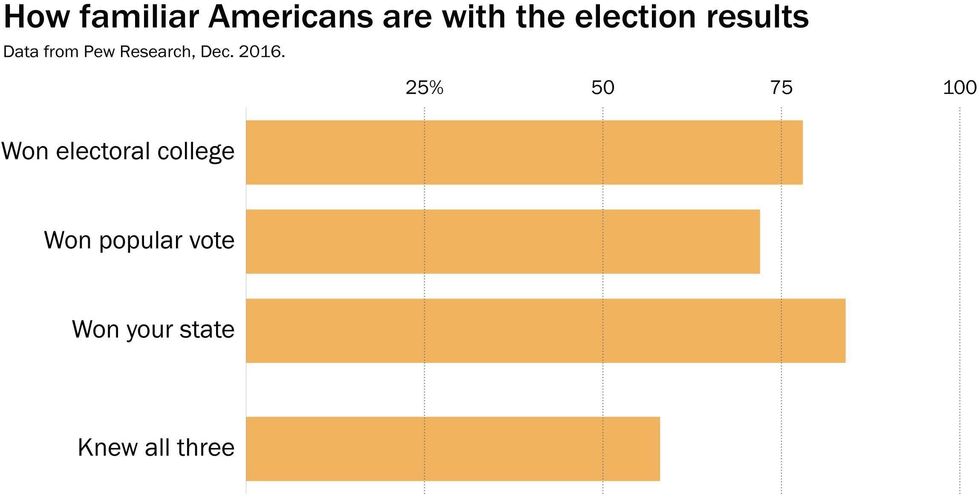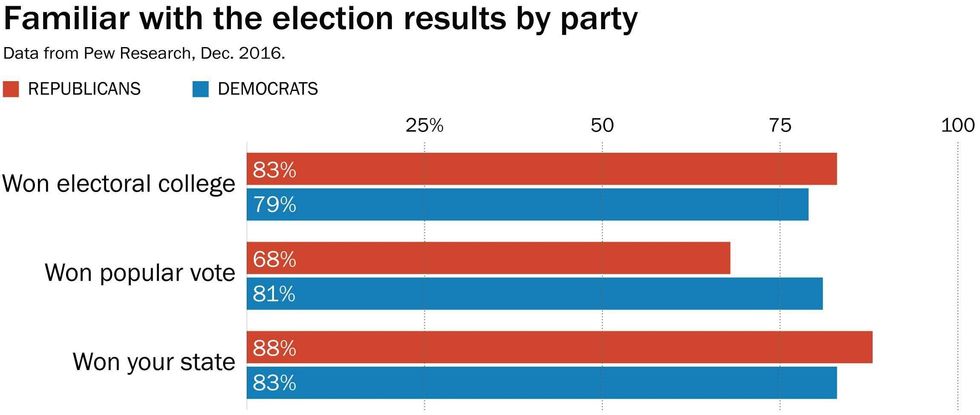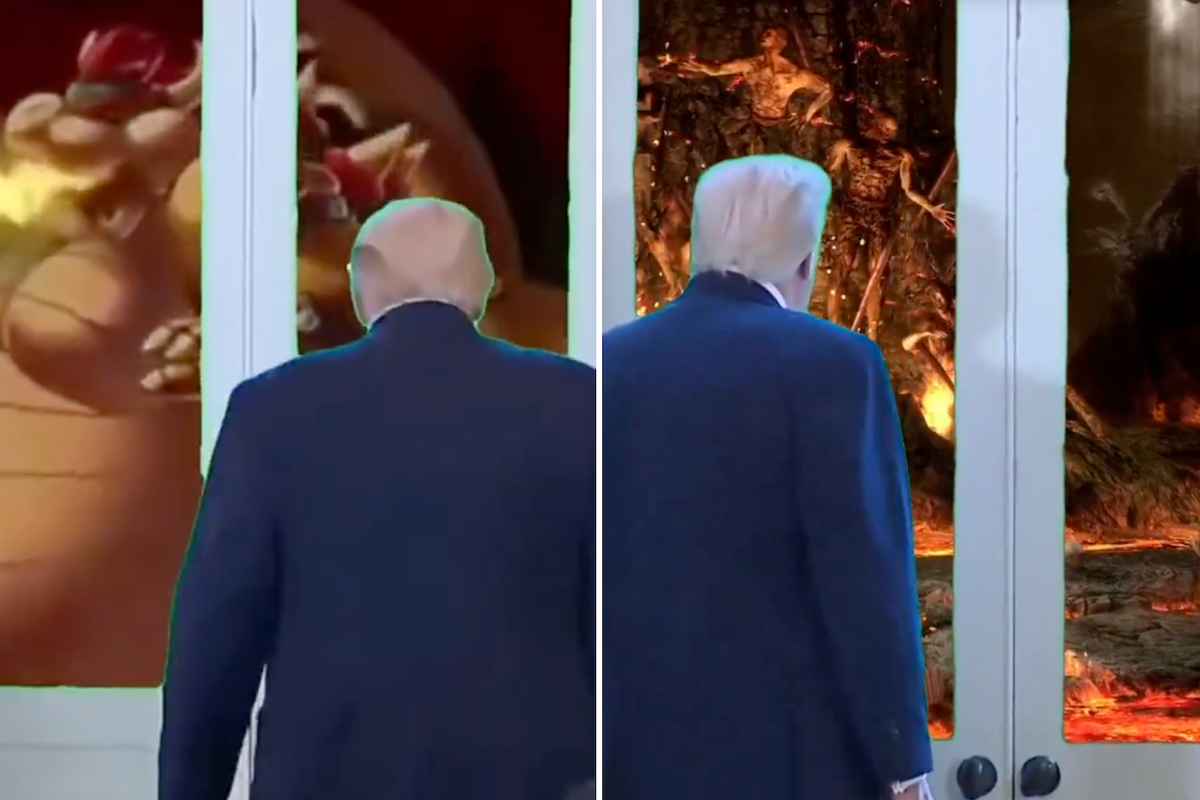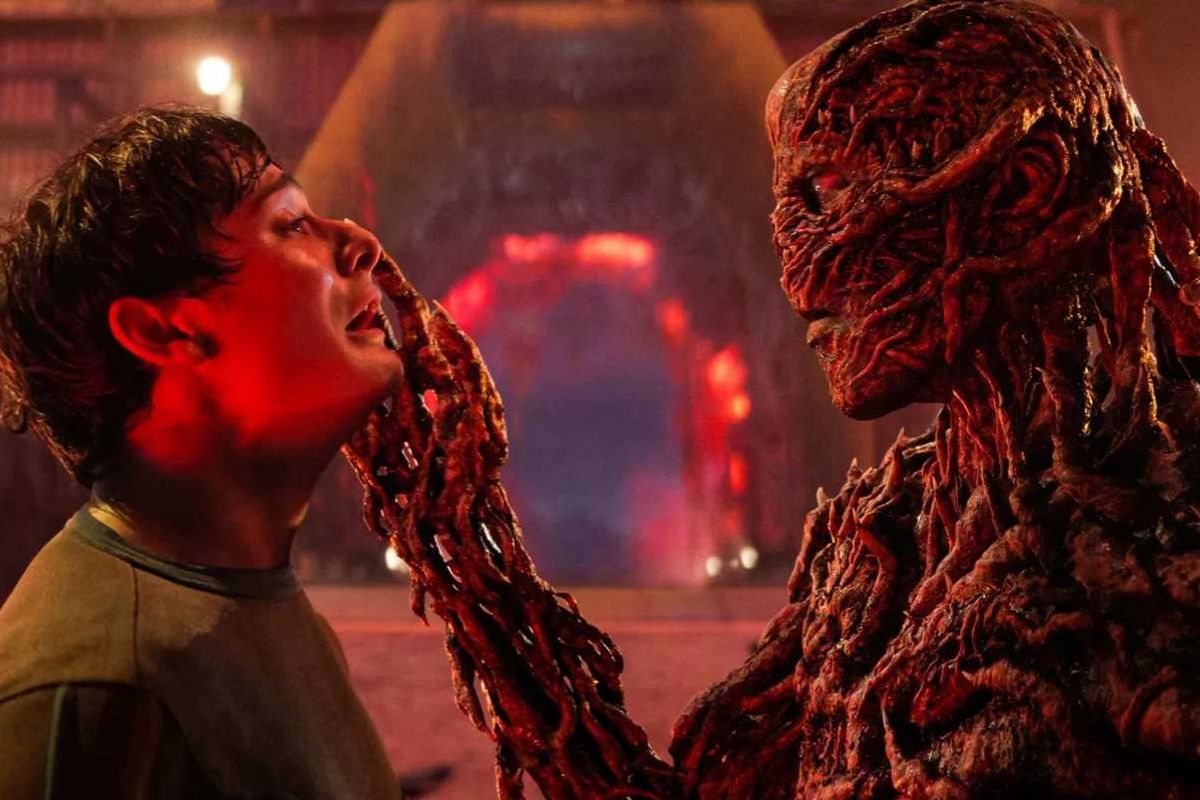Philip Bump
Dec 09, 2016
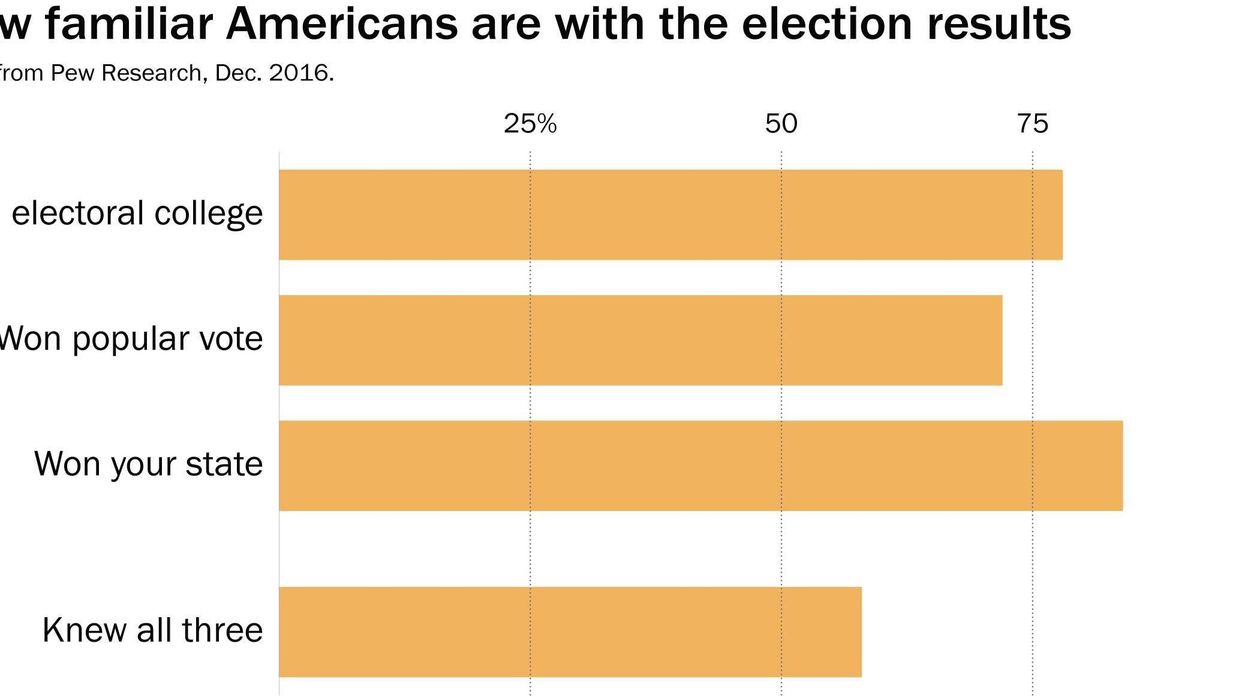
Donald Trump will be president thanks to his having won the electoral college by 74 votes. Hillary Clinton won the popular vote, as you know, by nearly 2.7 million ballots.
Or perhaps you don't know that. Pew Research quizzed people on whether or not they knew the results of the election and most people got the answers correct. But not all.
Pew asked three questions:
Who won the electoral vote?
Who won the popular vote? and
Who won your state?
Three-quarters of respondents got the first question right. More than 8-in-10 correctly identified the winner of their own state. But overall, only about 60 percent got all three correct, in part because nearly 30 percent of respondents didn't know who won the popular vote.
Why? Probably for a few reasons. The first is that Clinton's margin in the popular vote is mostly a function of the results in California, a state that only finished counting all of its ballots this week. On election night, the race was called fairly soon after California's polls closed, and at that point the popular vote race looked a lot closer. At the end of the day, of course, only the electoral vote tally matters for the purposes of president-picking, so the fact that Clinton ended up on top didn't really change anything.
But second, Trump and his supporters have aggressively pushed back on the idea that Clinton won the popular vote, even though she did.
There's a clear partisan split on getting that question right. Republicans were slightly more likely to know who won the electoral vote than Democrats and slightly more likely to know who won their own states. But Democrats were much more likely to know that Clinton won the popular vote.
Nearly a third of Republicans either didn't answer or gave the wrong response when asked who actually got more national votes.
Why might Republicans think Clinton lost the popular vote? Well, there's the fact that Trump himself claimed that Clinton only won the popular vote thanks to illegal ballots -- a claim that apparently stemmed from one random tweet and which not only lacks any actual evidence but also is contradicted by legal filings from Trump's own campaign attorneys.
There's also been a push to isolate as an anomaly the results in California -- where Clinton's margin of victory alone would give her the national popular vote victory. If you combine the results from all of the other states, Trump won. Of course, California is home to nearly one-eighth of the population of the country (and 4 percent of America's land area), but that margin is inconvenient. Breitbart wrote an article that spread quickly suggesting that, if you took out "coastal elite" counties -- i.e., high population cities -- Trump was the real winner. Public Policy Polling found in a national survey this week that only 53 percent of Trump voters thought California's votes should count to the national total. Why? Some probably would argue that it's due to the purported fraud Trump claimed existed. For others it may simply be that those votes undercut the idea that Trump was the people's pick.
Anyway, it doesn't matter in the context of who the next president will be. That will be Donald Trump, thanks to the electoral college. It does matter from the standpoint of a shared understanding of the nature of reality. To the extent that willful misrepresentation is the cause of those wrong answers, it's a problem.
Especially if the source of that misrepresentation is also the guy mentioned in the preceding paragraph.
Washington Post
Top 100
The Conversation (0)
